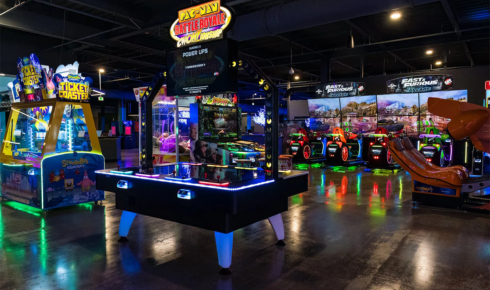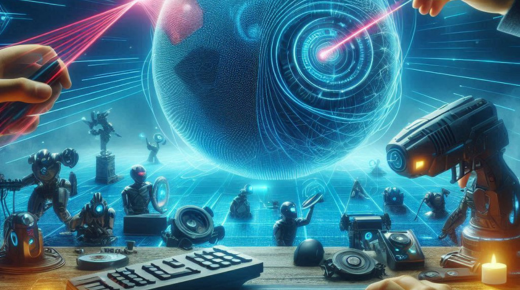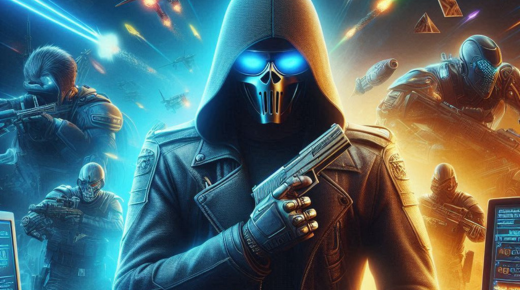- What is down advancement?
Game advancement is the most common way of making computer games, which includes idea improvement, plan, programming, workmanship, sound, testing, and advertising.
- What abilities do I have to turn into a game engineer?
Key abilities remember capability for programming dialects (like C++, C#, Python), information on game motors (Solidarity, Unbelievable Motor), critical thinking, imagination, and comprehension of plan standards.
- What are the principal jobs in game turn of events?
The principal jobs include:
Game Architect: Answerable for the game’s idea, mechanics, and client experience.
Developer: Composes code to carry out ongoing interaction, material science, simulated intelligence, and so forth.
Craftsman: Makes visual components, for example, character plans, conditions, surfaces, and activitys.
Sound Originator: Handles music, audio cues, and voice acting.
Quality Affirmation (QA) Analyzer: Guarantees the game works appropriately by finding and announcing bugs.
Maker: Deals with the group, course of events, and assets to guarantee the undertaking is finished on time.
- What programming dialects would it be a good idea for me to learn for game turn of events?
Well known programming dialects for game advancement incorporate C++, C# (particularly for Solidarity), Python, and JavaScript. Getting the hang of prearranging dialects, for example, Lua or SQL can likewise be advantageous.
- Do I want a degree to work in game turn of events?
While a degree in game turn of events, software engineering, or a connected field can be useful, it’s not called for 100% of the investment. Numerous fruitful game engineers are self-trained or have gone to coding bootcamps or particular courses.
- What is a game motor and for what reason is it significant?
A game motor is programming that gives instruments and parts to assist designers with making games. Famous motors incorporate Solidarity, Stunning Motor, and Godot. Game motors handle things like delivering, material science, and prearranging, working on game turn of events.
- What is the distinction between game plan and game turn of events?
Game plan centers around the inventive perspectives, including interactivity mechanics, rules, and story, while game improvement includes the specialized execution of those plans through programming and programming advancement.
- What are the best game motors for amateurs?
Solidarity is frequently prescribed for fledglings because of its easy to use interface and broad instructional exercises. Incredible Motor is likewise famous for its strong designs capacities and is appropriate for amateurs with programming experience.
- What are independent game advancement vocations?
Non mainstream game advancement alludes to making games autonomously, typically by little groups or solo engineers, without the support of huge distributers. It offers more artistic liberty yet may miss the mark on assets accessible in bigger organizations.
- How would I get everything rolling in game turn of events?
Begin by picking up programming dialects, getting to know game motors, constructing little ventures, and making a portfolio. Partaking in game predicaments and systems administration with different designers can likewise assist you with acquiring experience.
- What is a game engineer portfolio?
A game designer portfolio grandstands your best work, for example, finished games or ventures you’ve dealt with. It’s crucial for feature your abilities and imagination, and it’s generally expected a vital calculate finding position in the business.
- What is the job of a maker in game turn of events?
A maker directs the game improvement process, oversees timetables, financial plans, and assets, and directions between various groups (plan, craftsmanship, programming, and so forth) to guarantee the task keeps focused.
- What is the distinction among AAA and independent game turn of events?
AAA games are high-financial plan, enormous scope games created by significant studios, frequently with many designers. Independent games are normally evolved by more modest groups with less assets, offering more artistic liberty however less monetary assets.
- How would I break into the game business?
Building a portfolio, acquiring experience through temporary positions, going to game improvement occasions, and systems administration with industry experts are extraordinary ways of breaking into the game business. You can likewise begin by dealing with individual undertakings and sharing them on the web.
- What apparatuses do game engineers utilize?
Game designers utilize different devices, including:
Game Motors (Solidarity, Unbelievable Motor, Godot)
3D Displaying Programming (Blender, Autodesk Maya)
Sound Programming (Dauntlessness, FL Studio)
Project The executives Devices (Trello, Jira)
Variant Control (Git, SVN)
- What is the work standpoint for game engineers?
The work viewpoint for game engineers is positive, as the gaming business keeps on developing. Notwithstanding, rivalry is furious, and specific abilities in programming, plan, and arising advancements like VR/AR can further develop your work possibilities.
- What is the compensation range for game designers?
Compensations for game designers fluctuate contingent upon experience, area, and job. All things considered, a game engineer can procure between $50,000 to $100,000 every year, with additional accomplished designers procuring more significant compensations.
- Could I at any point work in game advancement without coding abilities?
Indeed, there are numerous jobs in game advancement that don’t need coding, like game plan, workmanship, movement, sound plan, and venture the executives. Nonetheless, some specialized information can be useful for these jobs.
- What is the job of a game planner?
A game creator is liable for making the game’s idea, rules, ongoing interaction mechanics, levels, and in general client experience. They work intimately with engineers to carry out their plans in the game.
- What is “time to take care of business” in game turn of events?
“Time to take care of business” alludes to the period close to the furthest limit of an undertaking when engineers work extended periods to comply with time constraints, frequently prompting burnout. It’s generally expected in the business, particularly in enormous studios, however many organizations are attempting to further develop balance between fun and serious activities.
- What is the job of a QA (Quality Confirmation) Analyzer?
A QA analyzer assumes a fundamental part in recognizing bugs, misfires, and ongoing interaction issues. They test the game completely before its delivery to guarantee that it works without a hitch and is liberated from specialized issues.
- How significant is organizing in the game advancement industry?
Organizing is critical in game turn of events. Going to industry occasions, partaking in game predicaments, and joining on the web networks can assist you with building connections, share information, and entryways to open positions.
- What are the professional success open doors in game turn of events?
Professional success can prompt jobs like senior engineer, lead architect, specialized chief, or studio head. You can likewise have some expertise in unambiguous regions like man-made intelligence programming, VR, or cloud gaming advancement.
- What are the critical difficulties in game turn of events?
A few difficulties incorporate tight cutoff times, overseeing complex and developing game plans, managing specialized restrictions, guaranteeing cross-stage similarity, and keeping a harmony among imagination and market requests.
- What patterns are molding the fate of game turn of events?
Key patterns include:
Cloud Gaming: Streaming games as opposed to running them locally.
Computer generated Reality (VR) and Expanded Reality (AR): Vivid gaming encounters.
Simulated intelligence and AI: Making more unique and responsive game universes.
Portable and Cross-Stage Games: Gaming across various gadgets.
Game-as-a-Administration: Persistent updates and live occasions in games.












